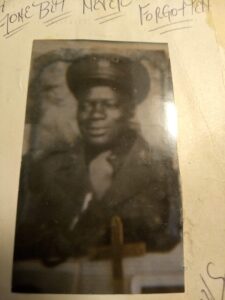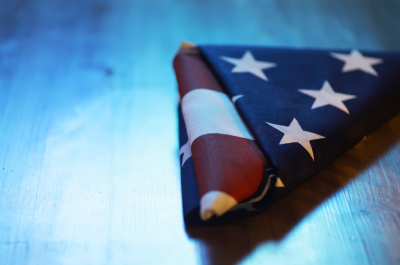I’ve watched an exceptionally, well written/directed, and equally, superbly acted war drama on Netflix, called The Six Triple Eight. A true story scripted from the book, Fighting a Two-Front War, by Kevin M. Hymel.
The backdrop, set in WWII, is about the first and the only COLORED army corps, called the 6888th Battalion of Women Army Corps. Stationed overseas, their task was the challenge of sorting through warehouses of undelivered mail (incomplete or incorrectly addressed) from families to soldiers. The Army Department and the President felt low morale was a viable enemy as well. These letters were crucial for hope and mental survival on the frontline. The soldiers needed to know their loved ones hadn’t forgotten them and were eagerly awaiting their return.
Despite unjustified and harsh segregated discrimination, the 6888th Battalion sorted over seventeen million pieces of mail for delivery.
I got to thinking after watching The Six Triple Eight (for the 3rd time) about my father’s talks with me about his life in the Army during WWII, because I questioned why he refused to watch war movies. Below is the research I did years back, and my teenage recollections with my father.

“The experience was very disappointing for a lot of Black soldiers,” says Matthew Delmont, history professor at Dartmouth College and author of Black Quotidian: Everyday History in African American Newspapers. “The kind of treatment they received by white officers in army bases in the United States was horrendous. They described being in slave-like conditions and being treated like animals. They were called racial epithets quite regularly and just not afforded respect either as soldiers or human beings.”
Dad said the barracks were filthy with roaches and rats, and visible nails stuck through the wooden floors. Supplied thin grey blankets came with holes; bed bugs lived in mattresses; and pillows were first come-first served. There weren’t fans to help with the sweltering heat, not enough outhouses (the bathrooms), and limited, cold shower facilities were also outside. Many got food poisoning. Letters were opened and items sent by the family were often stolen. Staff and drill sergeants called them Nigger or Boy, and imposed stiff punishments like standing outside in underwear and barefoot in the sun. They rose 30 minutes earlier. Racial prejudice was accepted and never questioned, and finally, dishonorable discharges were the highest punishment and often ordered within the first couple of weeks of enrollment.
Because the military didn’t think African Americans were fit for combat or leadership positions, they were relegated to labor and service units, as cooks and mechanics, building roads and ditch digging, and unloading supplies from trucks and airplanes. And for the few who did make non-commissioned officer rank, they could only lead other African Americans with harsh discipline “to keep them in line.”
Dad said because he didn’t have any college (few did back then), performed all the above duties. He was liked, because he knew what to do, say, and accept.
Despite African American soldiers’ eagerness to fight in World War II, the same Jim Crow discrimination in society was practiced in every branch of the armed forces. Many of the bases and training facilities were located in the South. The largest military installation for Blacks was Fort Huachuca, located in Arizona. Regardless of the region, all the bases there were separate: blood banks, hospitals or wards, medical staff, barracks and recreational facilities.
Dad was stationed in the South…I can’t remember where he was stationed…but he often spoke of it harshly. His time there was the worst he ever experienced in his life. He would never watch a war movie as long as I can remember.
After World War II officially ended on September 2, 1945. Black soldiers, particularly from the South, returned home facing violent mobs who resented them in uniform. These soldiers with their calls for equality were perceived as a threat to the social order of Jim Crow. Many were hanged, castrated, or burned alive just because it was a Monday! This wasn’t so for Dad, because our Ohio town was integrated.
In addition to racial violence, Black soldiers were often denied benefits guaranteed under the G.I. Bill: the sweeping legislation that provided tuition assistance, job placement, and home and business loans to veterans.
Dad was able to purchase a home through Home Savings and Loan Bank. He was the first of his large family of brothers and sisters to do so. He had to show an honorable discharge letter. His supervisor had to accompany him to the bank proving that Dad worked for Youngstown Sheet and Tube Steel Mill. Dad needed to have a bank account of at least $100.00 for one year (Grandpa gave him the money he was short of), and he had to be able to sign his name, present his birth certificate, and pass a criminal background investigation showing he’s never been arrested.
Civil rights activists continued to emphasize America’s hypocrisy as a democratic nation with a Jim Crow Army, and Southern Politicians firmly against full racial equality for Blacks—President Harry Truman signed Executive Order 9981 that desegregated the U.S. Armed Forces in July 1948. Full integration, however, would not occur until the Korean War.

I will add Dad died from Black Lung Cancer, working twenty-five years in the steel mill. Because he was a veteran, he received free treatment at the renowned Cleveland Cancer Clinic, was given the American Flag, and a headstone. I have the Flag, the only thing I requested. I want to pass it on to my only nephew Woodrow (who never got a chance to meet his grandfather and was named after him). Woodrow has made a career of the Army, receiving recognitions Dad would never have thought possible. Woodrow worked for years at the Pentagon. He’s an officer, a mentor, and leader. He holds the highest respect for what his grandfather and other African Americans endured during WWII.
I’d like to think Dad would watch with pride The Six Triple Eight, not because they were women, but because of their courage.

Very moving, Cheryl. I appreciate your sharing.
Alley, it’s my pleasure to brings my stories alive.
Oh, my God, Cheryl! I am in tears reading about what your father and other black soldiers were put through during WWII. My heart was warmed reading about Woody’s successes in the Army and his work at the Pentagon. I’m sorry he never got to meet your father. We also watched The Six Triple Eight and were terribly excited by all that the battalion of Black women achieved in less than a year when others failed before them. We had interest from Kerry Washington, who stars in the film directed by Tyler Perry, to narrate our documentary on “Liberty Ships: And the Women Who Built Them”. Another interesting tidbit about the making of the film: One of the production members had found the army trunk belonging to Major Charity Adams (played by Washington), including her uniform, etc. Additionally, when the production team found footage of the 6888th Battalion marching to perfection, Perry had the actresses drilled on the same marching formations and that portion of the film is extremely powerful, as you know. Bless your Dad, Cheryl, and you… Amen!
Dear Donna, I am a true storyteller, I own that after all these years. You, as my teacher, taught me so much, which is how I was able to tell father’s journey. My dad was my mentor also.
I carry the lessons he endured, and the ones he taught me, as a torch for my own challenges. How often I’ve heard his voice guiding me. He always tried to see the good in people, make the best out of his life, and carry with dignity his word. I’m blessed to have had such a father.
Excellent.
Much Love,
B
Dad was a light that has ALWAYS guided me. I can take all that has been thrown at me, all the challenges I’ve faced, knowing what he did and endured was my foundation. His complaints were few and his sense of humor could fill a room. I’d like to think his genes have sustained me,. He always told me—nothing can break you as long as you have will power and faith. Thank you Bill for reading and appreciating my words.
What an amazing and tragic story. This kind of degradation and hypocrisy is so profoundly godless and insane. The people who lived and survived the hellish landscape of Jim Crow are true heroes. How fortunate to have had a father like yours.
Mike, love as you know, with your grandparents is a treasured memory. I can’t tell you how many times I’ve heard my father’s voice guiding me. He showed me that no matter what challenges what I face, know and understand, I can rise above and be a better person. I think this is why he shared these kind of stories with me.
Thank you for posting, C.L.
This essay should be on LinkedIn….
Thank you so much D.R. for supporting my words
Cheryl,
I had seen “The Six Triple Eight,” and was thoroughly impressed by it. Thanks so much for sharing your Dad’s experiences during WWII as a Black soldier. It just amazes me how cruel human beings can be to one another.
My Dad was a POW in Japan for three years about which we were not allowed to speak. Right before he died when I was home on a visit he and I sat together and he spoke of his time there which was a very special moment and gift to me. For one, as a Caucasian he had no way of escape as he would be instantly recognized as not being Japanese – another sort of prejudice!!!
Miss you and trust you are enjoying your time there in the States despite all going on, but we soldier on!
Love to you and Tom, Zoë
Zoe, your words touch deeply touch me. Shared experiences with our fathers are memories that have both taught not just us life lessons, but also sustained us through these journeys. I try, as hard as it is at times, not to engulf the bitter disappointment surrounding the world. I wonder what my father would’ve thought and said. One thing I believe is he would’ve reminded me faith can change the darkness.